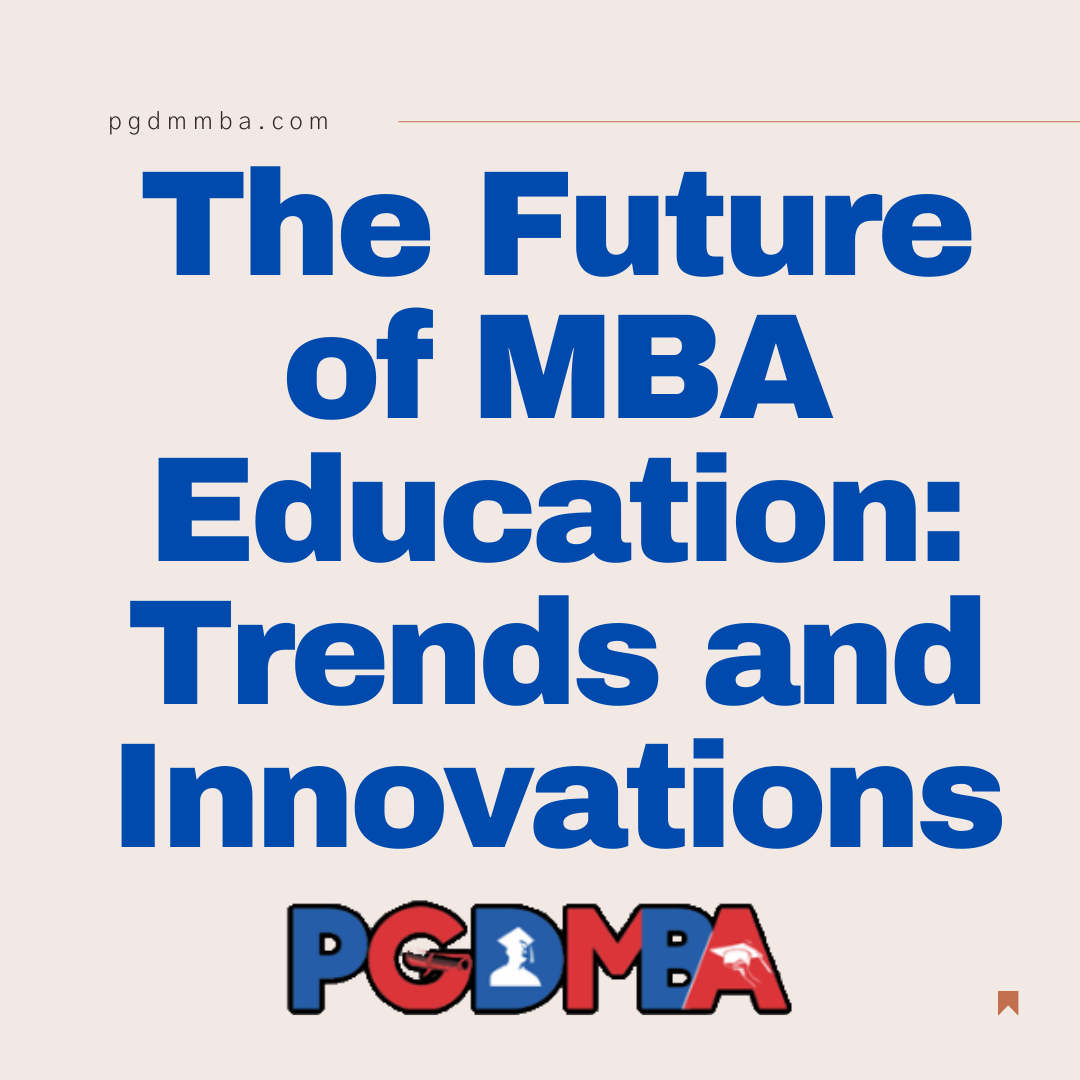MBA (Master of Business Administration) education has long been a sought-after qualification for individuals aspiring to excel in the business world. However, as technology advances and the business landscape evolves, the traditional MBA education is undergoing significant transformations. In this blog post, we will explore the future of MBA education, discussing emerging trends and innovations that are reshaping the way business schools approach their programs.
- Specialization and Customization: One of the key trends in MBA education is the shift towards specialization and customization. Business schools are recognizing the need to cater to diverse career aspirations and industry demands. Instead of offering a one-size-fits-all curriculum, many MBA programs now allow students to tailor their studies to match their specific interests. Specializations in emerging fields such as data analytics, entrepreneurship, sustainability, and AI are becoming more prevalent, enabling students to develop specialized skill sets and become industry-ready.
- Blended Learning and Online Education: The future of MBA education is undoubtedly intertwined with technology. Blended learning models, which combine online and in-person components, are gaining popularity. Online platforms offer flexibility, allowing students to access course materials and lectures at their convenience. Moreover, virtual classrooms facilitate global collaboration and networking, breaking down geographical barriers. Business schools are investing in immersive virtual learning experiences and cutting-edge technologies to create interactive and engaging online MBA programs.
- Experiential Learning and Real-world Applications: While theoretical knowledge remains essential, MBA programs are increasingly emphasizing experiential learning and real-world applications. Case studies, simulations, and consulting projects provide students with hands-on experiences, enabling them to apply their learnings to practical business challenges. Business schools are forging partnerships with industry leaders, startups, and nonprofit organizations to offer students opportunities for internships, consulting engagements, and industry-driven projects, enhancing their practical skills and fostering entrepreneurial mindsets.
- Emphasis on Soft Skills and Leadership Development: In addition to technical expertise, the future of MBA education places a strong emphasis on soft skills development and leadership training. Effective communication, teamwork, adaptability, and problem-solving are increasingly recognized as critical competencies for successful business leaders. MBA programs are incorporating courses, workshops, and coaching sessions to nurture these skills, preparing graduates to navigate complex business environments and lead diverse teams.
- Global Perspective and Cultural Intelligence: The interconnected nature of today’s business world demands a global perspective. Business schools are integrating international experiences and cultural intelligence training into their MBA programs. Study tours, exchange programs, and virtual collaborations with students from different countries offer opportunities to understand diverse business practices and cultural nuances. This exposure equips future business leaders with the ability to navigate global markets and work effectively in multicultural teams.
Conclusion: As the business landscape evolves, MBA education is adapting to meet the changing needs of students and employers. The future of MBA education is characterized by specialization, customization, blended learning, experiential learning, emphasis on soft skills, and a global perspective. These trends and innovations are designed to equip aspiring business leaders with the knowledge, skills, and adaptability required to succeed in an increasingly dynamic and interconnected world. Business schools that embrace these changes and foster an environment of innovation will continue to shape the future of MBA education.


